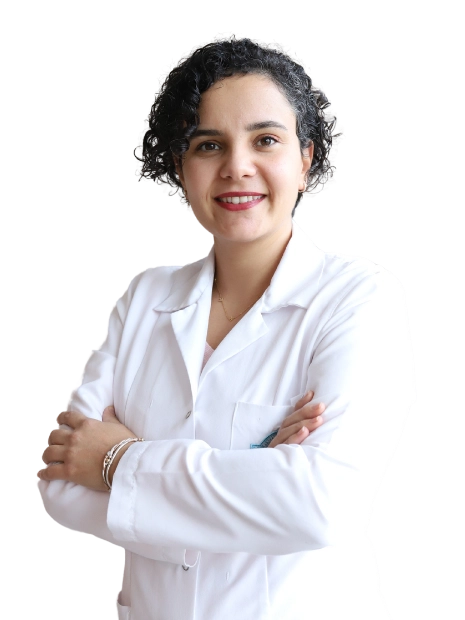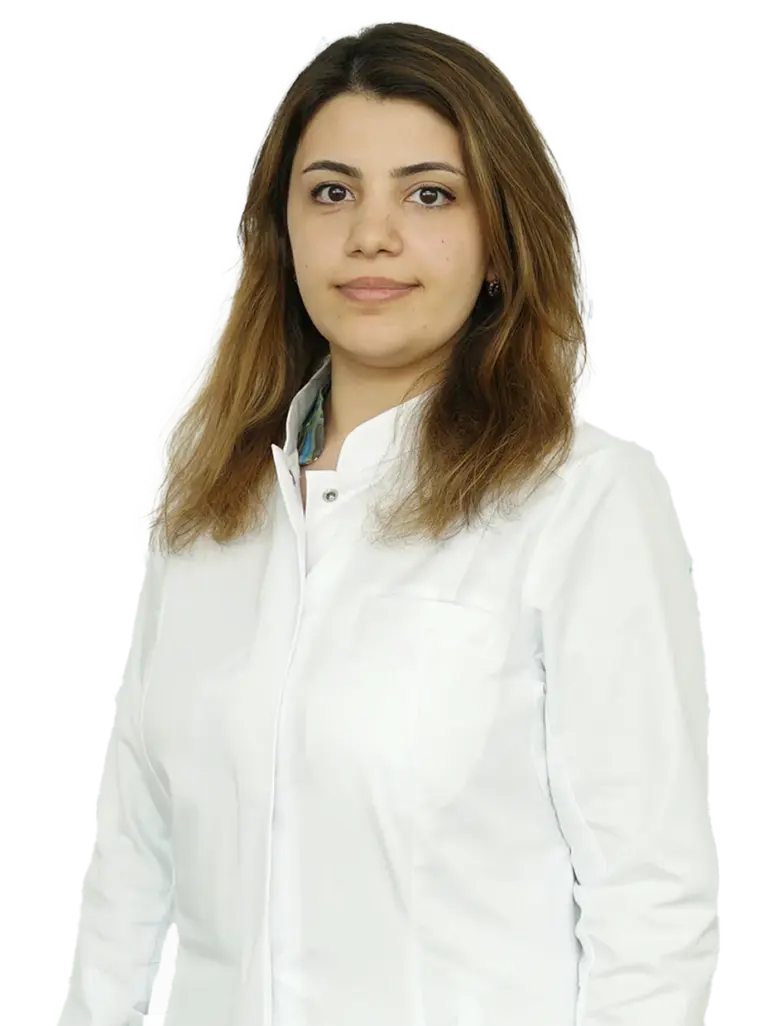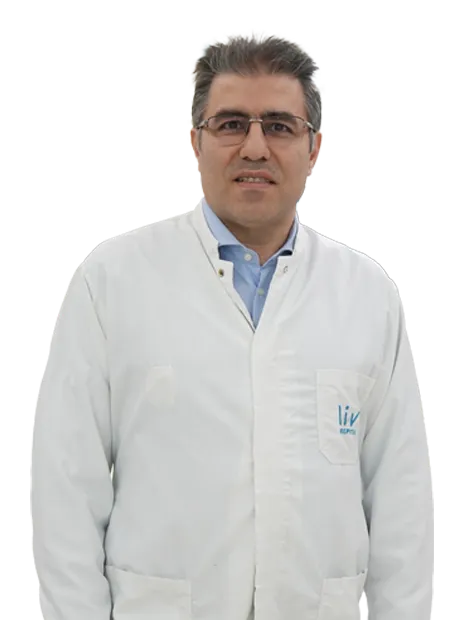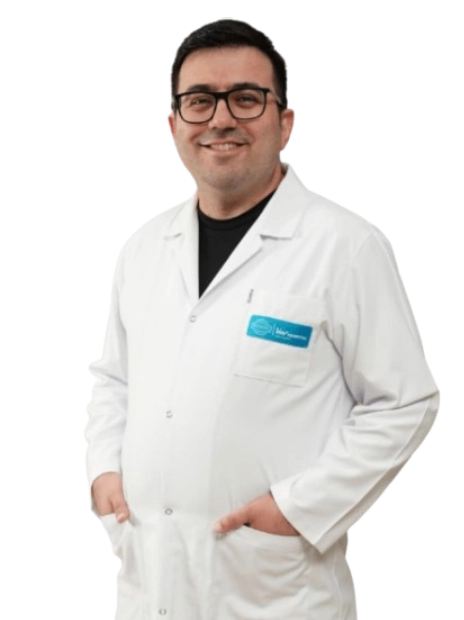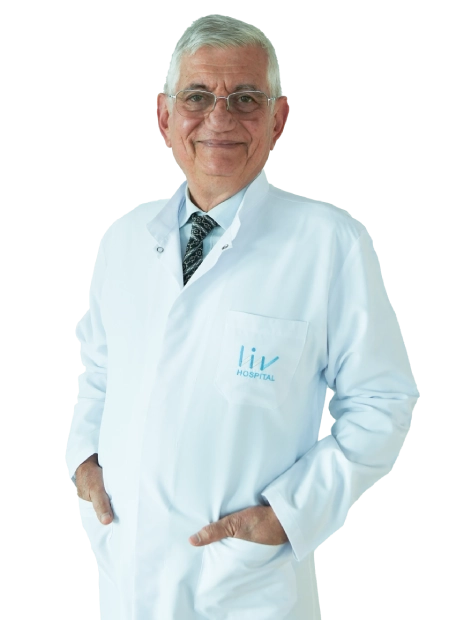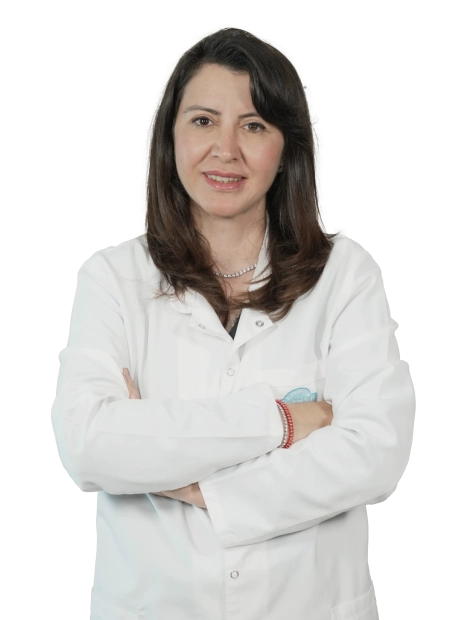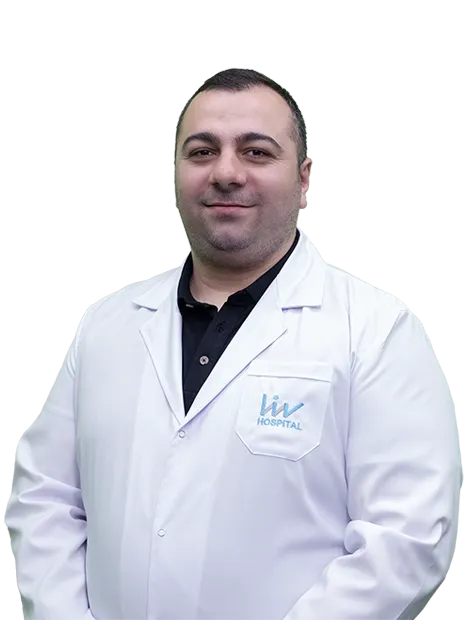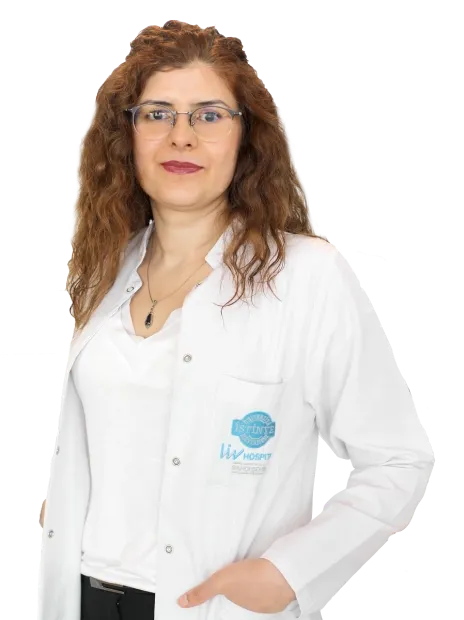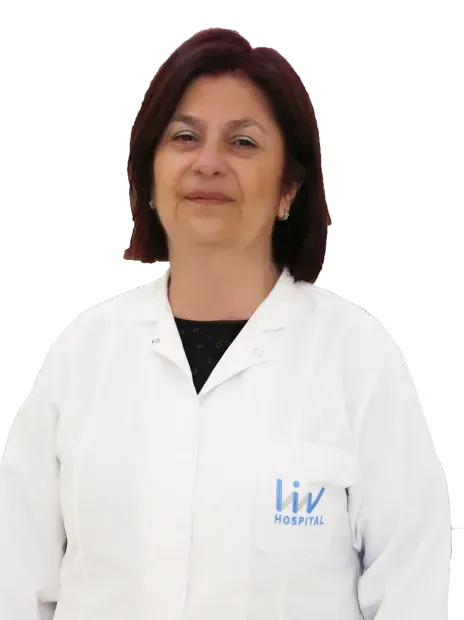When Should You See an Oncologist? Cancer is a big problem worldwide, with over 1.9 million new cases in the U.S. in 2023, says the American Cancer Society. Finding cancer early is key, and oncologists are at the forefront of this fight.
Oncologists are experts in finding and treating different cancers. Knowing when to seek their expertise is important for better treatment results. Look out for signs like persistent pain, unexplained weight loss, or changes in skin or moles.
Key Takeaways
- Early detection is key in cancer treatment.
- Oncologists specialize in diagnosing and treating various types of cancer.
- Certain signs and symptoms may need an oncologist’s visit.
- Knowing when to see an oncologist can greatly improve treatment outcomes.
- Regular check-ups and screenings help in early detection.
Understanding the Role of an Oncologist
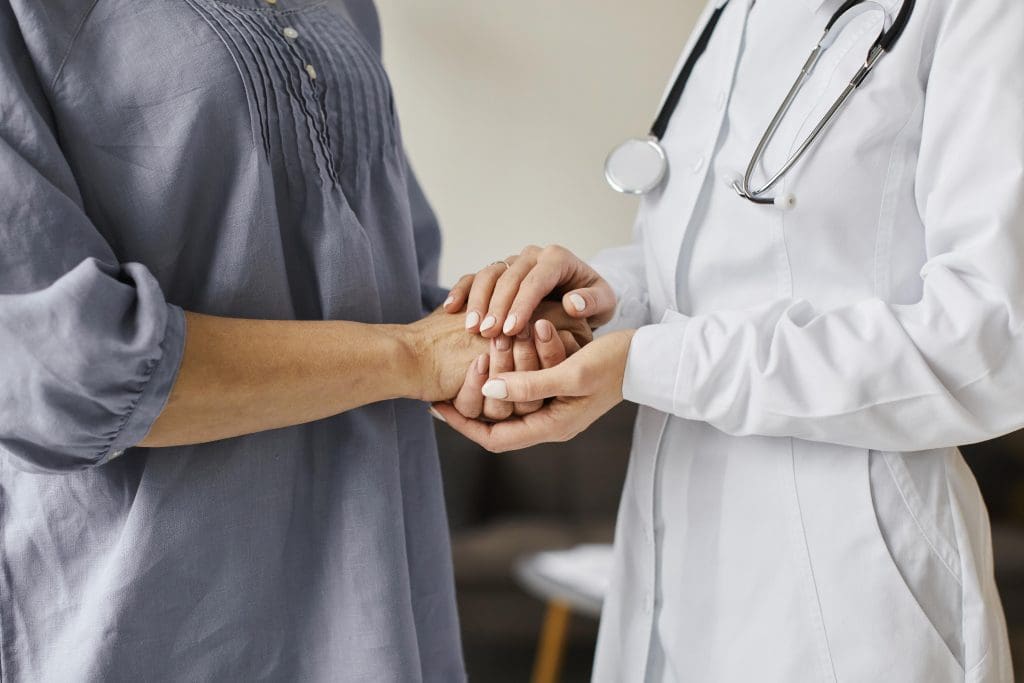
When you get a cancer diagnosis, knowing what an oncologist does is key. An oncologist is a who focuses on cancer. They help diagnose, treat, and manage cancer.
What is an Oncologist?
An oncologist is a who has studied a lot about cancer. They help patients with cancer by diagnosing, planning treatments, and easing symptoms.
“Oncology is always changing,” says a top oncologist. “So, oncologists must keep up with new treatments and tech to give the best care.”
Types of Oncologists and Their Specializations
There are different kinds of oncologists, each with their own area of focus:
- Medical Oncologists: They focus on cancer treatments like chemotherapy, hormone therapy, and immunotherapy.
- Surgical Oncologists: They remove tumors and help diagnose and stage cancer.
- Radiation Oncologists: They use radiation to treat cancer, alone or with other treatments.
How Oncologists Differ from Other Medical Specialists
Oncologists are different because they take a full approach to cancer care. They work with a team to create treatment plans that fit each patient’s needs.
“Oncologists treat the whole patient, not just the cancer. They think about the patient’s physical, emotional, and social health when planning treatment.”
When to See an Oncologist: Key Indicators
Knowing when to see an oncologist is key to better cancer treatment. Some symptoms and risk factors mean you should see a specialist.
Recognizing Symptoms That Warrant Specialist Care
Some symptoms might mean you need to see an oncologist. These include:
- Unexplained weight loss
- Persistent pain
- Unusual bleeding or discharge
- Changes in skin appearance or texture
- New lumps or growths
These signs don’t always mean cancer. But, they do need a check-up.
Timeframes for Seeking Oncological Evaluation
How fast you should see an oncologist varies. For example:
| Symptom/Risk Factor | Recommended Timeframe for Evaluation |
| Unexplained weight loss | Within 2-4 weeks |
| New lump or growth | Within 1-2 weeks |
| Family history of cancer | Discuss with primary care physician |
Early Detection and Its Impact on Treatment Outcomes
Finding cancer early is very important. Early detection means better treatment options and higher survival rates.
- More treatment options available
- Less invasive treatments possible
- Improved survival rates
- Better quality of life during and after treatment
Understanding early detection and knowing when to see an oncologist is vital. It can greatly improve cancer treatment results.
Unexplained Lumps and Growths: Signs Requiring Oncologist Evaluation
Seeing unexplained lumps or growths is a big sign to see a. These signs can be scary. Knowing what they mean is important for what to do next.
Characteristics of Concerning Lumps
Lumps or growths that are worrying have certain signs. They are different from harmless ones. These signs include:
- Lumps that are hard, irregular in shape, or fixed to the surrounding tissue
- Growths that are increasing in size over time
- Lumps that are painless or, conversely, are associated with pain
- Growths that are located in unusual or unexpected areas of the body
Watching these signs is key to spot problems early. The American Cancer Society says knowing your body and telling your about changes is vital for catching cancer early.
Common Locations for Potentially Cancerous Growths
Lumps or growths can happen anywhere, but some places are more likely to have cancer. These places include:
| Location | Type of Cancer | Common Symptoms |
| Breast | Breast Cancer | Lump or thickening in the breast tissue |
| Testicles | Testicular Cancer | Painless lump or swelling in a testicle |
| Lymph Nodes | Lymphoma | Swollen lymph nodes in the neck, armpits, or groin |
A medical expert says, “Finding cancer early is key to better treatment. Watching your body and getting medical help when needed is very important.”
“The key to successful cancer treatment lies in early detection. Being aware of your body and reporting any unusual changes to your healthcare provider can make a significant difference in outcomes.”
Oncologist
When to Monitor vs. When to Seek Immediate Attention
Not all lumps or growths need immediate help, but knowing when to act is important. If you see something unusual or a lump shows worrying signs, see a right away.
In summary, knowing about unexplained lumps and growths and their signs helps decide when to see an oncologist. Catching cancer early is key to good treatment. Being careful about your health can really help your outcome.
Persistent Symptoms That Should Not Be Ignored
It’s important to know about symptoms that might mean a serious health problem. These symptoms don’t always mean cancer, but they need a check-up to find out why.
Unexplained Weight Loss and Fatigue
Unexplained weight loss and constant tiredness can point to many health issues, including cancer. Losing weight without trying or feeling very weak means you should see a. It’s key to find out why you’re feeling this way.
Chronic Pain That Doesn’t Resolve
Long-lasting pain might mean you have a serious condition that needs a specialist. Pain that doesn’t get better with treatment or changes in how it feels should be checked by a. Chronic pain can be linked to cancer, so getting it checked early is important.
Unusual Bleeding or Discharge
Unusual bleeding or discharge from anywhere on your body is a big warning sign. This includes bleeding between periods, bleeding after menopause, or unusual discharge from nipples or other areas. Seeing a is a must to check for serious problems.
Changes in Skin Appearance or Texture
Changes in your skin, like new moles, changes in existing moles, or other skin changes, can be a sign of health issues. Watching these changes and talking to a if they’re unusual is important. Some skin changes can be linked to cancer, so catching it early is key.
Being careful about these symptoms and getting medical help when needed can really help your health. If you’re experiencing any of these symptoms, don’t wait to talk to a.
Abnormal Test Results: Understanding When They Lead to Oncology Referrals
Abnormal test results are a key sign that might send patients to an oncologist. It’s important for patients to know about these tests and what they mean.
Blood tests help find health problems, like cancer. worry about certain blood test results, such as:
- Complete Blood Count (CBC) abnormalities, like anemia or odd white blood cell counts.
- Elevated tumor markers, which suggest some cancers might be present.
These signs often lead to more tests to figure out the cause and treatment.
Imaging Study Findings That Require Further Investigation
Imaging tests, like X-rays and MRIs, show what’s inside the body. Certain findings might need more looking into, such as:
- Unidentified masses or tumors.
- Changes in the size or shape of organs.
These signs could mean cancer and need an oncologist’s expert opinion and care.
Biopsy Results and Their Implications
A biopsy looks at body tissue or cells for disease. Results can be benign, malignant, or unclear. Malignant biopsy results show cancer and mean a visit to an oncologist is needed. It’s key for patients and to understand biopsy results to plan the best care.
In summary, abnormal test results, from blood tests, imaging, and biopsies, are vital in spotting health issues, like cancer. Knowing when these results mean a visit to an oncologist is important for getting the right care on time.
Knowing when send patients to oncologists is key to using the healthcare system well. This step is vital in finding and treating cancer. It makes sure patients get the right care when they need it.
Standard Referral Protocols in American Healthcare
In the U.S., there are set rules for when primary care should send patients to specialists like oncologists. These rules come from many medical groups and companies.
Key factors influencing referrals include:
- Suspected cancer diagnosis based on symptoms or test results
- Abnormal screening results requiring further evaluation
- Family history of cancer indicating higher risk
- Previous cancer diagnosis requiring ongoing care
The Referral Process Explained
The process starts with a primary care checking a patient’s symptoms, medical history, and test results. If they think cancer might be present or if the patient’s risk is high, they’ll send a referral to an oncologist.
The steps involved in the referral process are as follows:
- Initial evaluation by the primary care physician
- Decision to refer based on judgment and guidelines
- Preparation of referral documentation, including medical records and test results
- Patient consultation to discuss the referral and next steps
Timeframes for Oncology Appointments After Referral
How long it takes to get an oncology appointment after being referred can change. It depends on how urgent the case is, how busy oncologists are, and what says.
| Referral Type | Typical Wait Time | Factors Influencing Wait Time |
| Urgent Referral | 1-2 weeks | Severity of symptoms, suspected cancer type |
| Routine Referral | 2-6 weeks | Availability of oncologists, approval |
Understanding the path from primary care to oncology helps patients better navigate healthcare. By knowing when to seek a referral, patients can get the care they need quickly and correctly.
Family History and Genetic Risk Factors: When Preventive Oncology Visits Make Sense
Looking at family history and genetic risks helps find who needs preventive oncology visits. Knowing these factors well lets better understand cancer risks. They can then suggest the right steps to prevent it.
Hereditary Cancer Syndromes
Hereditary cancer syndromes are caused by inherited genetic mutations. They greatly increase the risk of certain cancers. For example, BRCA1 and BRCA2 mutations raise the risk of breast and ovarian cancers. Lynch syndrome is linked to colorectal, endometrial, and other cancers.
Key Hereditary Cancer Syndromes:
- BRCA1 and BRCA2 (Breast and Ovarian Cancer)
- Lynch Syndrome (Colorectal and Endometrial Cancer)
- Li-Fraumeni Syndrome (Multiple Cancer Types)
- Familial Adenomatous Polyposis (Colorectal Cancer)
Genetic Testing Considerations
Genetic testing can spot hereditary cancer syndromes. But, deciding to get tested is a big choice. It’s important to weigh the benefits and limits.
| Benefits | Limitations |
| Identifies genetic mutations | May not detect all mutations |
| Informs cancer risk assessment | Results can be inconclusive |
| Guides preventive decisions | May cause emotional distress |
Preventive Strategies for High-Risk Individuals
Those at high risk due to genetics or family history can benefit from preventive steps. These include more frequent screenings, medicines to prevent cancer, and surgery to remove high-risk tissues.
Preventive measures can greatly lower cancer risk and improve outcomes for those at high risk.
Age-Related Risk Factors
Age is a big risk factor for many cancers. It’s important to understand how age affects genetic and family history risks. This helps in creating effective prevention plans.
By looking at both genetic and age-related risks, can give personalized advice. This advice helps prevent and detect cancer early.
Blood Disorders and Hematologic Concerns Requiring Specialist Evaluation
Blood disorders need special care, but how do you know when? They affect blood cells like red, white, and platelets. Some are harmless, while others are serious and need different treatments.
Common Blood Cancers and Their Early Symptoms
Blood cancers, or hematologic malignancies, include leukemia, lymphoma, and multiple myeloma. Their early signs can be hard to spot. Look out for:
- Unexplained fatigue or weakness
- Weight loss
- Fever or night sweats
- Frequent infections
- Easy bruising or bleeding
The American Cancer Society says early detection is key. “Early detection of blood cancers can significantly improve treatment outcomes.”
“The key to managing blood cancers lies in early diagnosis and appropriate treatment,” said a hematologist-oncologist.
When to Consult a Hematologist-Oncologist
A hematologist-oncologist specializes in blood disorders and cancers. See one if symptoms last or your suggests it.
| Condition | Symptoms | Specialist |
| Leukemia | Fatigue, infections, bruising | Hematologist-Oncologist |
| Lymphoma | Swollen lymph nodes, fever, weight loss | Hematologist-Oncologist |
| Multiple Myeloma | Bone pain, anemia, infections | Hematologist-Oncologist |
Non-Cancerous Blood Disorders That May Require Oncology Input
Not all blood issues are cancer. Anemia, thrombocytopenia, and bleeding disorders might need a hematologist. Sometimes, an oncologist’s advice is needed, even for non-cancerous issues.
In summary, knowing the signs of blood disorders is vital. Whether it’s cancer or not, seeing a specialist early can greatly improve treatment.
Cancer Screening Results: When Follow-Up With an Oncologist is Necessary
Understanding your cancer screening results is key to knowing if you need to see an oncologist. These tests aim to find cancer early, before symptoms show. They help figure out if you need more tests.
Common Cancer Screening Tests and Their Results
There are many tests for different cancers. For example, mammograms check for breast cancer, colonoscopies for colon cancer, and Pap smears for cervical cancer. Results can be normal, abnormal, or unclear. Abnormal results might not mean cancer. They could show pre-cancer or non-cancerous issues.
False Positives vs. True Concerns
A false positive result means a test says there’s cancer when there isn’t. This can cause a lot of worry and extra tests. But, if results show real cancer or pre-cancer, it’s a serious concern.
The Follow-Up Process After Abnormal Screening
After an abnormal test, what happens next is very important. usually suggest more tests, like biopsies or scans, to find out why the test was abnormal. Sometimes, seeing an oncologist is needed to talk about treatment.
Recommended Screening Schedules by Cancer Type
Screening times vary based on the cancer and your risk. For example, women might start mammograms at 40 or 45. Colon cancer screening starts at 45 for those at low risk. Knowing these times and talking to your helps plan your screenings.
It’s important to stick to the recommended screening times. Knowing your results helps you take charge of your health. It’s key to get the right follow-up care when needed.
Seeking a Second Opinion: When and Why to Consult Another Oncologist
When you get a cancer diagnosis, getting a second opinion is key. It helps you understand your condition better and the treatment options you have. This step can guide you in making informed decisions about your care.
Appropriate Timing for Second Opinions
Knowing when to get a second opinion is important. You might want one if you’ve just been diagnosed, have a rare cancer, or are unsure about your treatment. Getting a second opinion can give you peace of mind and help find other treatment options.
How to Request a Second Opinion
Getting a second opinion involves a few steps. Start by talking to your current oncologist about it. They can suggest specialists. It’s important to choose an oncologist who knows a lot about your cancer type. Also, bring all your medical records and test results to share with the new oncologist.
What to Expect During a Second Opinion Consultation
At a second opinion, you’ll get a detailed look at your diagnosis and treatment plan. The oncologist will check you physically, review your medical history, and might order more tests. This is your chance to ask questions and learn more about your diagnosis and treatment options.
Reconciling Different Medical Opinions
If the second opinion is different from the first, you need to understand the reasons. You might talk to both oncologists or get a third opinion. Talking openly and working together can help you make the best choices for your care.
Treatment Planning and Management: The Oncologist’s Central Role
When you get a cancer diagnosis, it starts a journey. An oncologist’s help in planning treatment is key. They manage your care from start to finish.
Initial Treatment Planning Process
The first step is a detailed check of your cancer type and stage. Oncologists create a treatment plan just for you. This might include surgery, chemo, or radiation.
They think about your health, what you want, and the latest treatment research. This is when they decide the best way to fight your cancer.
Ongoing Care Coordination
Keeping your care on track is important. The oncologist works with many healthcare teams. This team includes surgeons and other experts.
Good coordination means your care runs smoothly. The oncologist’s role is key to your success.
Survivorship Planning
Planning for your long-term health is a big part of cancer care. Oncologists help you make a plan for after treatment. This plan covers health checks and how to stay well.
Multidisciplinary Approach to Cancer Care
Today, cancer care is a team effort. Oncologists work with others to make a treatment plan just for you. This team effort helps you get the best care.
| Specialist | Role in Cancer Care |
| Surgeon | Performs surgical procedures to remove tumors or cancerous tissues. |
| Radiologist | Interprets imaging studies and administers radiation therapy. |
| Pathologist | Examines tissue samples to diagnose cancer and determine its type and stage. |
| Oncologist | Develops and implements treatment plans, manages patient care, and coordinates with other specialists. |
The oncologist’s role is vital in cancer care. Knowing about treatment planning and teamwork helps you on your cancer journey.
Advanced Cancer Care: Specialized Treatment Options
For those with advanced cancer, knowing about treatment options is key. Advanced cancer care has made big strides. Now, patients have many specialized treatments that can improve their lives.
trials are important for finding new cancer treatments. They test new therapies that might not be available yet. Patients with advanced cancer might find new hope in these trials.
- Access to new and innovative treatments
- Potential for improved outcomes
- Contribution to the advancement of cancer research
Targeted Therapies and Immunotherapies
Targeted therapies and immunotherapies are big steps forward in cancer treatment. Targeted therapies target specific cancer growth points. Immunotherapies use the immune system to fight cancer.
| Therapy Type | Description | Benefits |
| Targeted Therapy | Focuses on specific molecular targets | Reduced harm to healthy cells, improved efficacy |
| Immunotherapy | Harnesses the immune system | Potential for long-term cancer control, enhanced immune response |
Palliative Care Integration
Palliative care is a big part of cancer care. It helps manage symptoms, pain, and improves life quality for patients and families. Adding palliative care to treatment plans can greatly improve outcomes.
Palliative care supports patients in several key areas:
- Symptom management
- Pain control
- Emotional and psychological support
Emerging Technologies in Cancer Treatment
New technologies are changing cancer treatment. Precision medicine, gene editing, and nanotechnology are opening new ways to treat cancer.
As research keeps moving forward, patients with advanced cancer have more options. Talking to an advanced cancer care oncologist can help find the best treatment plan.
When you think you might have cancer, knowing about and referrals is key. This can seem hard, but knowing what to do can make it easier.
First, learn what your needs for a specialist visit. Many plans need a referral from your primary care.
Check your policy to see what’s needed and any for specialist care.
| Plan | Referral Requirement | Out-of-Pocket |
| HMO | Yes | $20-$50 copay |
| PPO | No | 20%-30% coinsurance |
| EPO | Yes | $30-$60 copay |
Self-Referral vs. Physician Referral
Some plans let you see specialists on your own, while others need a referral. Knowing this can help you better.
“Patients should be aware of their plan’s policies regarding referrals to specialists. This knowledge can prevent unexpected medical bills.” –
, Oncologist
Financial Assistance Programs for Cancer Care
Cancer care can be very expensive. But, there are programs to help with.
- Patient advocacy programs
- Cancer-specific financial aid programs
- Government assistance programs
These programs can help with medication, travel, and other cancer-related.
If your says no, don’t worry. You can appeal the decision.
To appeal, you’ll need to send more info, like medical records or a letter.
Knowing how to appeal can help you win your case.
Preparing for Your First Oncologist Appointment
Knowing what to bring and what to ask during your first oncologist appointment can greatly reduce anxiety and improve outcomes. Being prepared helps ensure that you make the most of your visit and receive the care you need.
Essential Medical Records to Gather
Before your appointment, it’s important to gather all relevant medical records. This includes:
- Previous biopsy results or pathology reports
- Imaging studies such as X-rays, CT scans, or MRI scans
- Medical history, including previous diagnoses and treatments
- A list of your current medications and dosages
- Any relevant family medical history
Having these records organized can help your oncologist understand your condition more accurately and make informed decisions about your care.
Questions to Ask Your Oncologist
Preparing a list of questions can help you make the most of your appointment. Consider asking about:
- The stage and type of cancer
- Prognosis and treatment options
- Potential side effects of treatment
- trials or experimental treatments that may be available
- Support services and resources for patients and families
Don’t hesitate to ask questions; your oncologist is there to provide you with the information and support you need.
What to Expect During the Initial Consultation
During your first appointment, your oncologist will typically:
- Review your medical history and records
- Perform a physical examination
- Discuss your diagnosis, prognosis, and treatment options
- Answer your questions and address your concerns
This is also an opportunity for you to get a sense of your oncologist’s approach and whether you feel comfortable with their care.
Bringing a Support Person
Having a family member or friend accompany you to your appointment can be incredibly beneficial. They can:
- Provide emotional support
- Help take notes during the consultation
- Ask questions you might not think of
This can make the experience less overwhelming and help you remember important details discussed during the appointment.
| Preparation Task | Description | Benefit |
| Gathering Medical Records | Collect previous biopsy results, imaging studies, medical history, current medications, and family medical history. | Helps your oncologist understand your condition accurately. |
| Preparing Questions | List questions about your diagnosis, treatment options, and support services. | Ensures you receive necessary information and support. |
| Bringing a Support Person | Have a family member or friend accompany you to the appointment. | Provides emotional support, helps with note-taking, and can ask additional questions. |
Conclusion: Taking Proactive Steps for Your Health
Knowing when to see an oncologist is key for catching cancer early. We’ve looked at signs like unexplained lumps and abnormal test results. These are reasons to visit an oncologist.
Being proactive means knowing these signs and getting help when needed. This includes regular check-ups and genetic tests for those at high risk. It’s also important to act fast if symptoms worry you.
There are many reasons to see an oncologist, like needing specialized care. Understanding their role helps you manage your health better.
Being proactive can really help your health and treatment. By staying informed and taking control, you make better choices. This ensures you get the right care when you need it.
FAQ
What is the role of an oncologist in cancer care?
Oncologists help diagnose, treat, and manage cancer. They create treatment plans and support patients throughout their journey. There are different types, like medical, surgical, and radiation oncologists, each with their own area of focus.
What are the common blood tests that may lead to an oncology referral?
Blood tests like complete blood counts (CBCs) and tumor marker tests might lead to a referral. These tests look for cancer signs in your blood.
How long does it typically take to get an oncology appointment after a referral?
Getting an oncology appointment can take a few days to weeks. It depends on how urgent your case is and how busy oncologists are.
Should I seek a second opinion from an oncologist?
Getting a second opinion is up to you. But it’s often a good idea, even for complex cancers. It can give you more information and options.
What can I expect during my first oncologist appointment?
At your first visit, the oncologist will look over your medical history and talk about your symptoms. They might do a physical exam and order tests to confirm a diagnosis and plan your treatment.
How do I prepare for my first oncologist appointment?
To prepare, collect all your medical records and test results. Write down your questions and consider bringing someone for support.
What are the benefits of consulting a hematologist-oncologist for blood disorders?
Hematologist-oncologists specialize in blood cancers and disorders. They can diagnose and treat blood cancers like leukemia and lymphoma, and manage other blood disorders that need oncology care.
How do oncologists coordinate care with other healthcare professionals?
Oncologists work with a team of specialists to plan your treatment. They work with surgeons, radiologists, and pathologists to ensure you get the best care.
What are the emerging technologies in cancer treatment?
New technologies include targeted therapies and immunotherapies. These treatments are tailored to your genetic profile and tumor characteristics.




